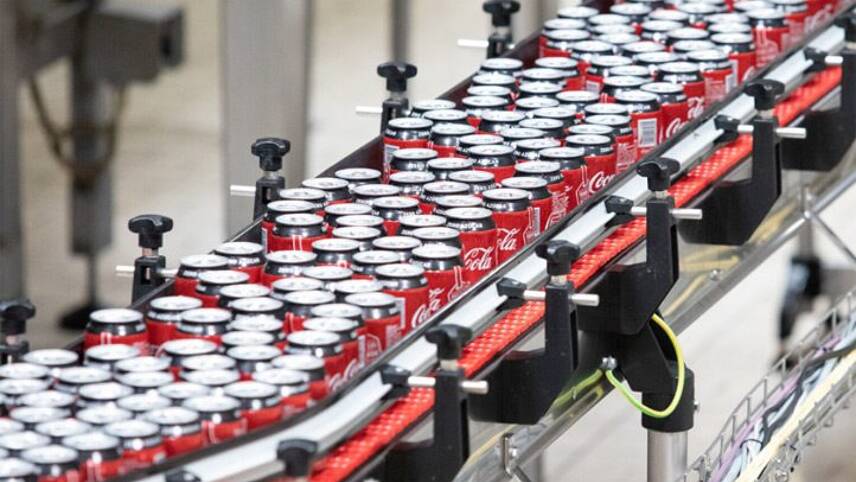This premium content is exclusive to edie Members.
To find out more about edie Membership, please click below.
If you are an existing member, login here

Image: CCEP
At a glance
Who: Coca-Cola Europacific Partners
What: Research partnerships in carbon capture
Where: UK, Europe and California
Why: To explore the viability of capturing carbon to be used in products
When: Partnerships developed between 2022 and 2023
The challenge
As the population continues to grow, land becomes more contested and forests burned down for agricultural processes, it is clear that innovating the agri-sector is key to combatting key megatrends like land loss and degradation, deforestation and the climate crisis.
For companies like CCEP, agricultural ingredients, including sugar, can account for around 25% of the firm’s overall carbon footprint. Tackling emissions associated with agri-ingredients will be key to reaching net-zero.
The solution
CCEP has announced a host partnerships with universities across Europe to research carbon capture technologies with a view to utilising them across the company’s supply chain.
How it works
The company’s Ventures arm (CCEP Ventures) is collaborating with the University of California, Berkeley (UCB) to explore novel methods of capturing carbon and then using it as a feedstock.
CCEP is financing the three-year research programme that will be led by the Peidong Yang Research Group at the University of California, Berkeley, which will first and foremost focus on the production of sugar from onsite carbon at an industrial scale.
The Peidong Yang research group has been developing nanoscience-enabled CO2 conversion technologies using renewable energy. His group has developed artificial photosynthetic systems that can effectively be powered by solar energy. In turn, this clean energy source can be used to convert carbon dioxide in the atmosphere into valuable chemical products, including sugar, biodegradable plastics, pharmaceutical drugs and liquid fuels.
Building on that partnership, CCEPV has agreed to two new partnerships to scale research on carbon capture technologies. CCEPV is partnering with Universitat Rovira i Virgili (URV) in Tarragona, Spain and the University of Twente (UT) in the Netherlands.
A separate partnership with researchers at Swansea University will explore how CO2 captured from the atmosphere could be reused to create ethylene for use in plastic bottles. The research aims to develop technology that would capture CO2 from the atmosphere to be used as an alternative to fossil fuels that are used during the ethylene production process.
The results
The aim of the project is to enable the firm to support scientists and experts to hopefully deliver a viable, onsite method to capture carbon emissions from facilities and then use them in products in a bid to drive down emissions.
With agricultural ingredients, including sugar, amounting to approximately a quarter of CCEP’s overall carbon footprint, this technology could not only reduce emissions associated with sugar manufacturing processes but positively contribute to optimizing land usage as less arable land becomes available due to global population growth.
CCEP believes that a viable solution would save on raw and finite materials for things like packaging – by turning carbon into PET plastic and reducing the need for crude oil – and fuel and reducing transportation and logistics costs due to the onsite aspect of the project.
The business
In 2020, Coca-Cola Europacific Partners (CCEP) committed to reducing net emissions across its value chain by 30% by 2030, before bringing them to net-zero by 2040. At the time, CCEP said in a statement that it is ready to go further and faster after reducing value chain emissions by 30.5% since 2010.
© Faversham House Ltd 2024 edie news articles may be copied or forwarded for individual use only. No other reproduction or distribution is permitted without prior written consent.

